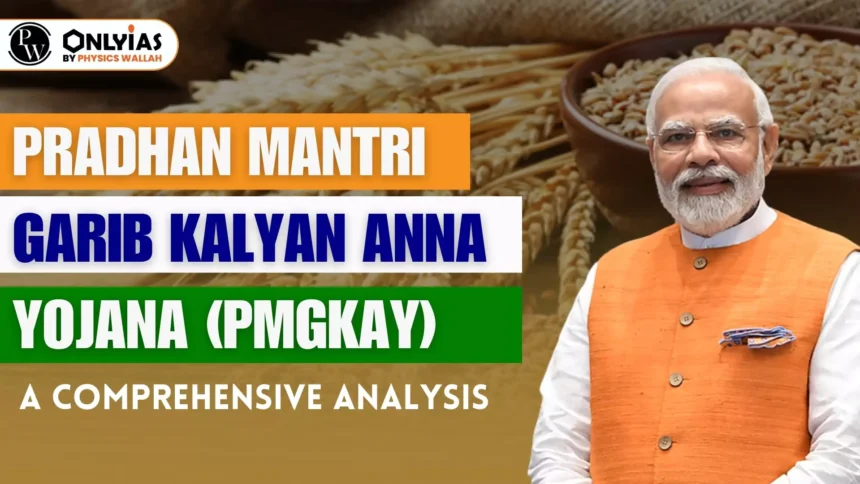The Narendra Modi government recently made a significant announcement, extending the Pradhan Mantri Garib Kalyan Anna Yojana for five more years, starting from January 1, 2024. This initiative, initially introduced in 2020 as a pandemic relief measure, provided 5 kg of free food grains per month to identified families, supplementing the 5 kg of subsidised food grains under the National Food Security Act (NFSA). The extended program, which will benefit nearly 81 crore people, allocates 5 kg of free food grains per month to poor families and an impressive 35 kg to Antyodaya households.
Union minister Anurag Thakur, in a briefing after the Cabinet meet, disclosed that the government plans to allocate a staggering ₹11.80 lakh crores over the next five years for the implementation of this scheme. Originally designed as a response to the challenges posed by the COVID-19 pandemic, the Pradhan Mantri Garib Kalyan Anna Yojana has proven to be instrumental in supporting vulnerable populations, and its extension underscores the government’s commitment to social welfare.
The decision to integrate the Pradhan Mantri Garib Kalyan Anna Yojana into the NFSA at the end of 2022, providing free ration for one year, reflects a strategic move to streamline and consolidate welfare measures for better efficiency and reach.
In addition to the extension of the food distribution scheme, the Union cabinet also approved a novel initiative – the allocation of drones to 15,000 women Self Help Groups (SHGs). With a budget of ₹1,261 crore for a two-year period starting from the 2024-25 fiscal year, this scheme is set to empower women in rural areas by providing them with technological tools for agricultural purposes.
More About The Scheme:
Anurag Thakur explained that the objective of the drone scheme is to offer rental services to farmers through the selected women SHGs. This forward-thinking approach not only fosters gender empowerment but also recognizes the crucial role that technology can play in enhancing agricultural productivity. By involving women in the deployment of drones for agricultural activities, the government aims to create economic opportunities, foster skill development, and contribute to the overall growth of rural communities.
The government’s decision to extend the Pradhan Mantri Garib Kalyan Anna Yojana and introduce the drone scheme for women Self Help Groups reflects a multi-faceted strategy to address the diverse needs of the population. These initiatives signify a commitment to inclusive growth, social welfare, and leveraging technology for the betterment of communities across the nation.











